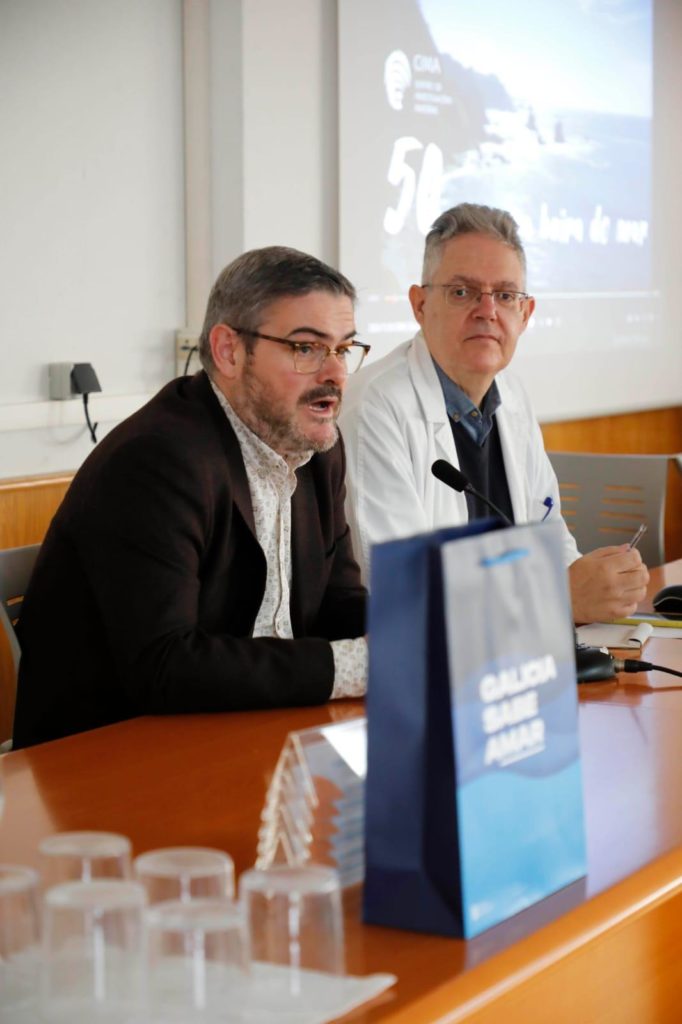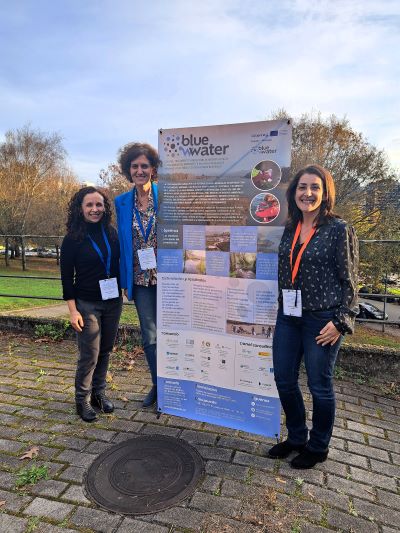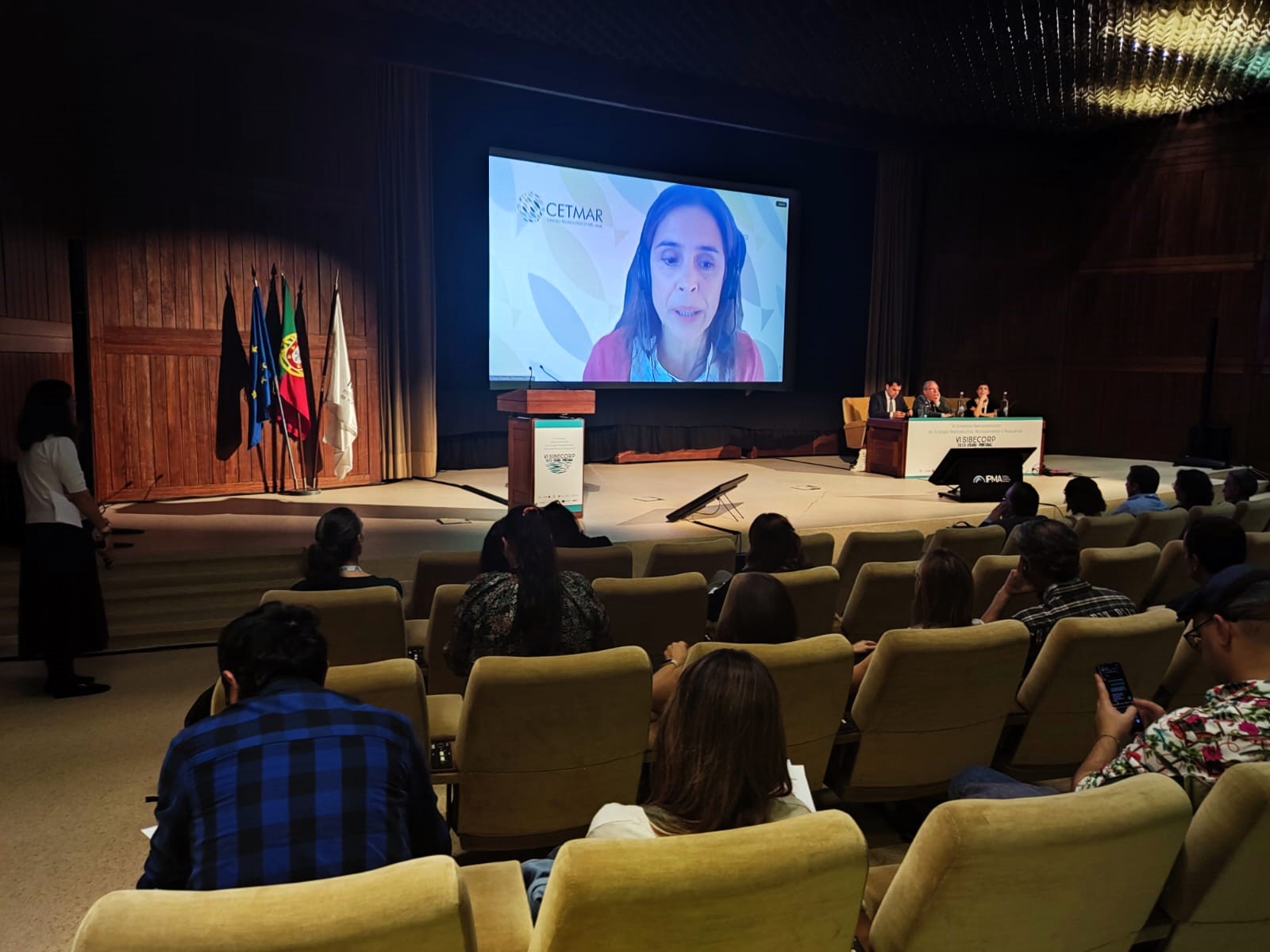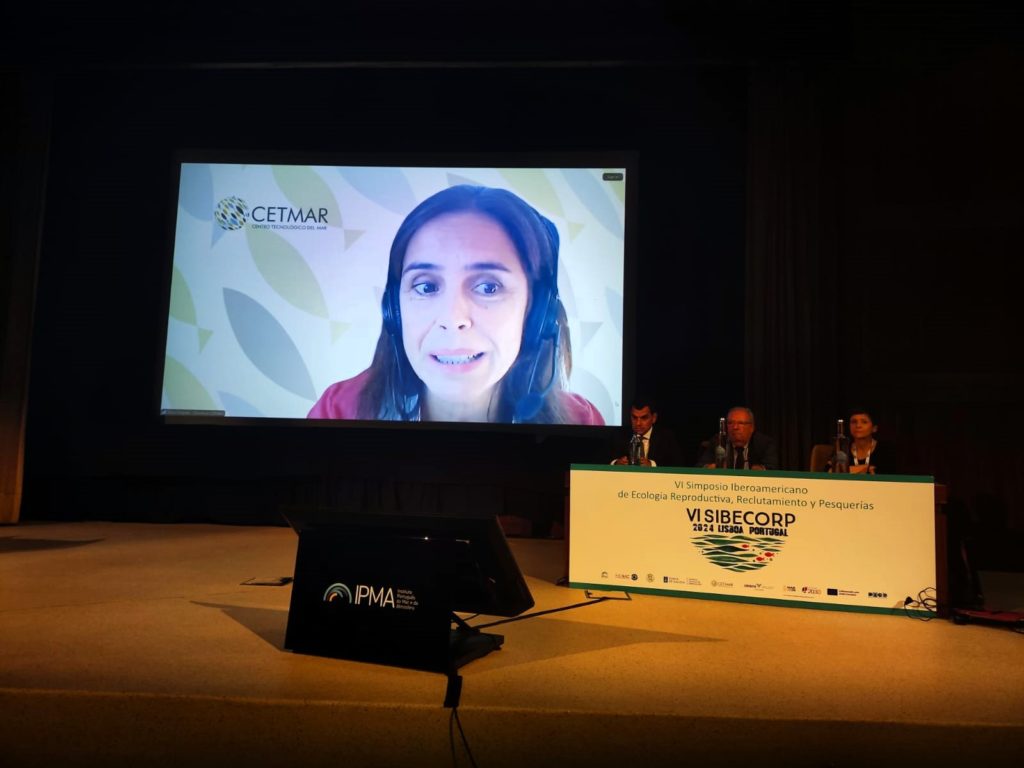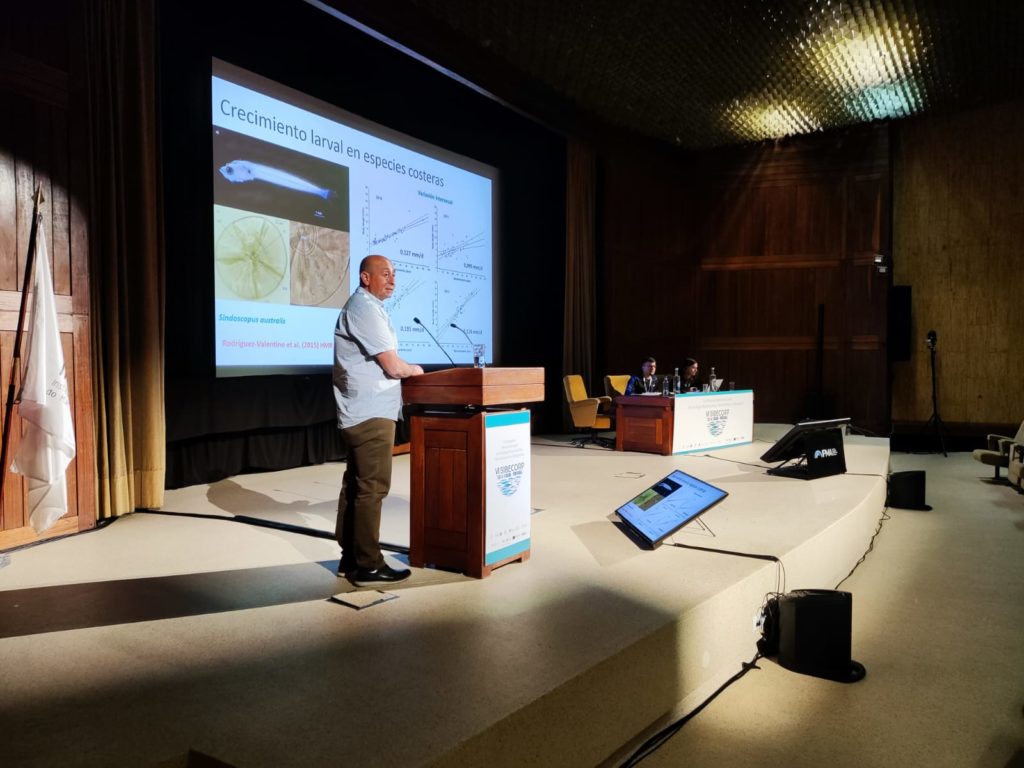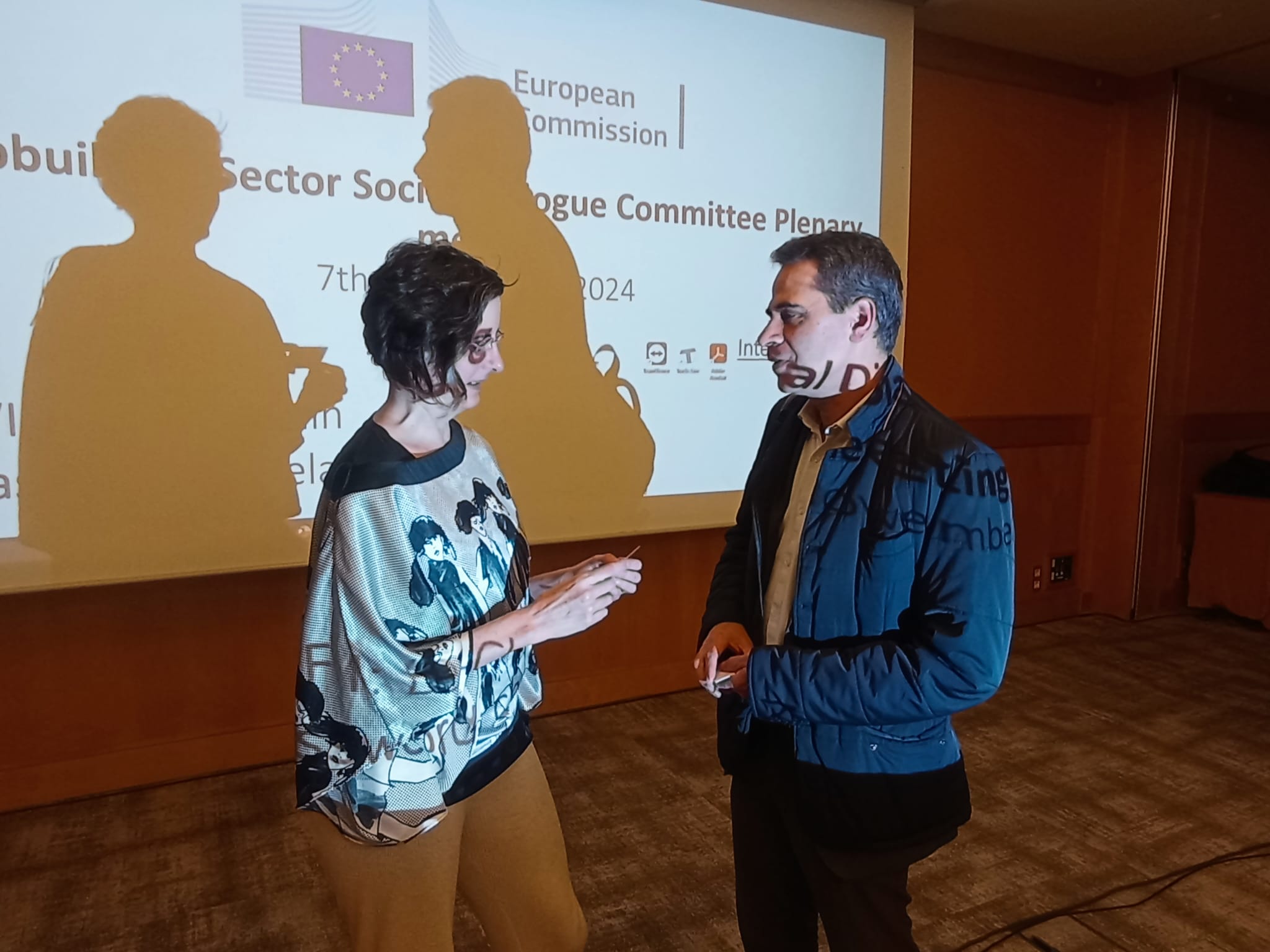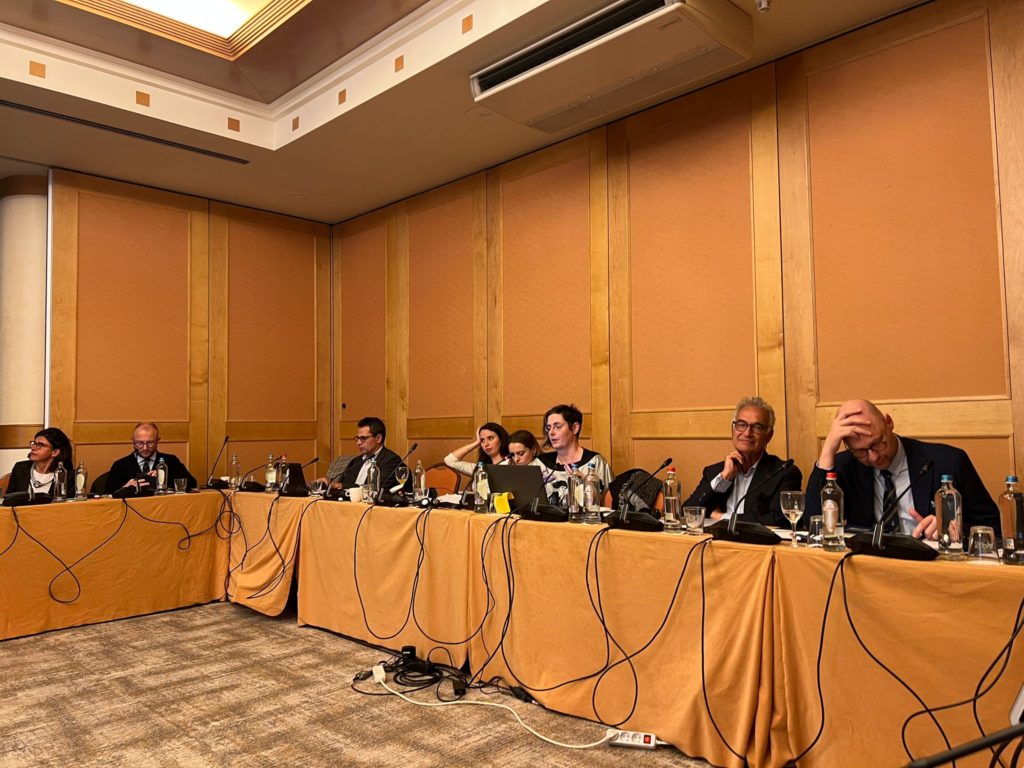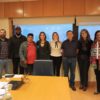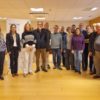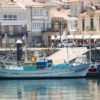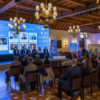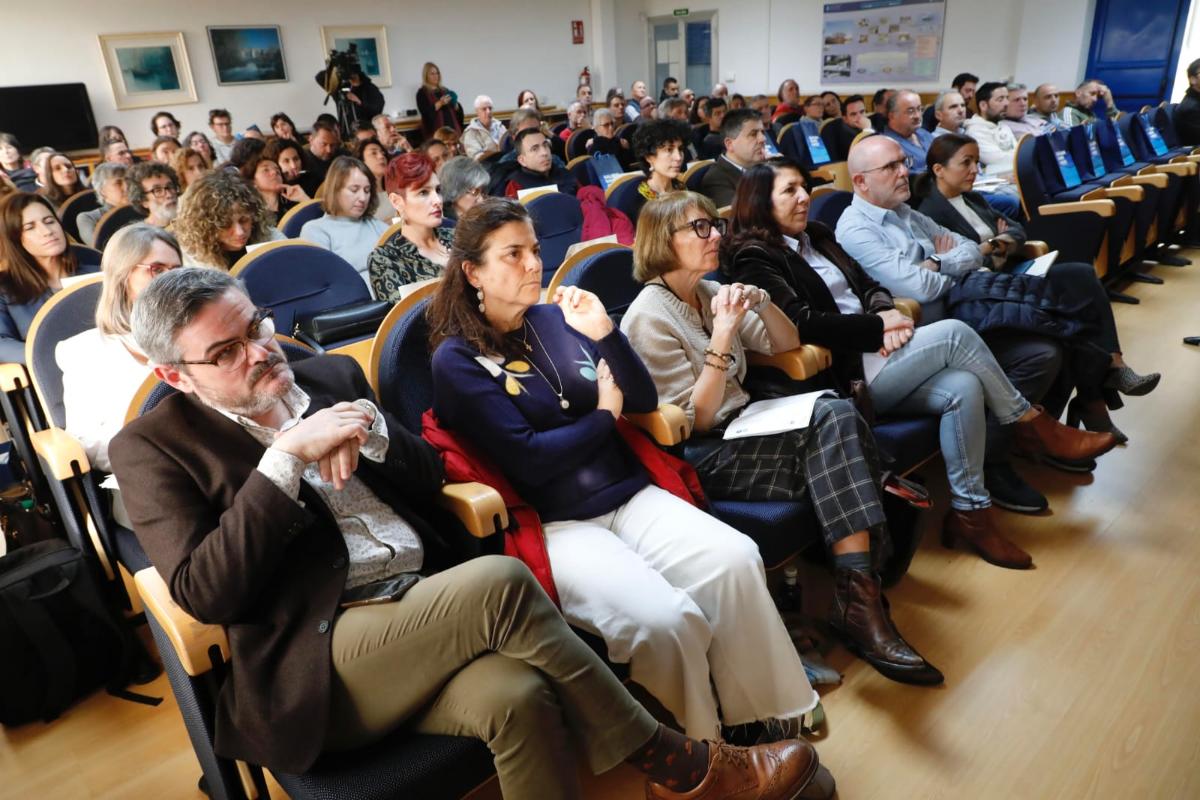
Xunta (Galician Regional Government) presents the results of the management of mussel seed in the Apromex project, in which CETMAR participates
- The Consellería do Mar (Regional Department for Marine Issues) is promoting several initiatives to guarantee the sustainability and development of this strategic aquaculture resource
- This initiative involves the Marine Research Centre (CIMA) and the Technology Centre of the Sea-CETMAR and focuses on the analysis and management of mussel seed
The Marine Research Centre (CIMA), dependent from the Consellería do Mar, hosted today a session to show the progress achieved in the Apromex project and also announced other actions promoted by the Consellería aimed at promoting the exchange of knowledge.
The General Director of Fisheries, Aquaculture and Technological Innovation, Antonio Basanta, attended the event with the General Director of Fisheries Development, Marta Villaverde, who highlighted the importance of the mussel sector in Galicia, with a key role for the economy and identity of the community. He also stressed the Galician Government’s commitment to innovation and collaboration between institutions, science and the productive sector as the best way to face current and future challenges.
In this way, Mr. Basanta remarked that the Consellería do Mar is promoting various initiatives to ensure the sustainability and development of this strategic aquaculture resource. The activities, coordinated by CIMA are also supported by centres such as CETMAR and the University of Vigo and co-financed by the European Maritime, Fisheries and Aquaculture Fund (EMFF).
This is the context framing the Apromex project, led by the Directorate General of Fisheries, Aquaculture and Technological Innovation through CIMA and with the technical support of CETMAR, focused on the analysis and management of mussel seed. This year, a great effort continued with sampling activities to assess the state of the resource on the rocks. The event showed the percentage of mussel seed on the rocks along the Galician coast, including those obtained in the sampling prior to this year’s extraction campaign.
The information is available through a simple query and will help the industry to plan the extraction activities basing on a thorough knowledge of the distribution of the resource.
Other initiatives
Additionally to the progress of Apromex, other relevant initiatives promoted by the Consellería were presented in the event. One was the weekly sampling of larvae in the Galician rías, led by CIMA and developed by CINBIO from the University of Vigo and whose reports are availbale on the Intecmar website. Also the Capacitamex project, led by CETMAR, for the transfer of results of the actions promoted by the Consellería to the mussel producers associations, and the information for the sector included in the Pescadegalicia platform presented by NUNEGAL consulting.
Regarding the weekly sampling, information on mollusc larvae, including mussels, in certain fixed stations located in the Galician rías, will be presented. A new tool to check this information will be soon available on the Apromex website, to simplify the assessment of the current weekly reports.
Networking
This event gathered producers, technicians and researchers and provided an opportunity to learn about new developments and to discuss the strategies and solutions under study to ensure the sustainability and constant development of the sector. It was a session not only to share results, but also to enable dialogue between producers, administration and research.
